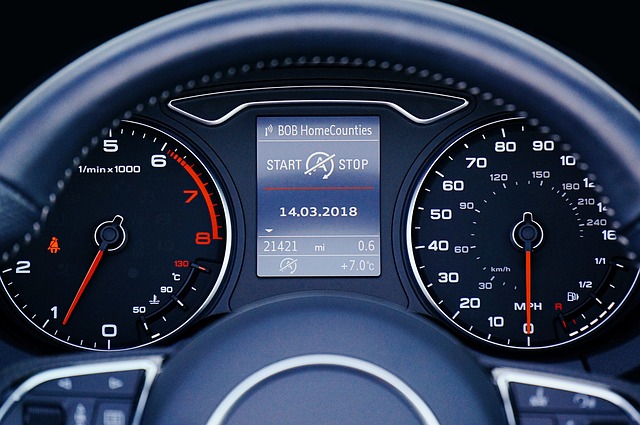The global automotive sensors market is expected to reach $12.79 billion by 2030, with a CAGR of 5.47% during the forecast period 2021-2030. Original equipment manufacturers (OEMs) are integrating numerous sensors in their vehicles to achieve performance demands being made by customers regarding increased productivity and minimization of vehicle downtime. Companies are developing solutions to deal with issues such as driver fatigue, which is being seen as a major factor in about 20% of road accidents happening today.
The automotive industry has expanded globally over the last century, primarily owing to changing consumer preferences, rising concerns with regard to driver safety and environment, and stringent government regulations focusing on crash avoidance rather than crash survival. The constant demand to meet efficiency and security standards are effectively driving the need to deploy automotive sensors. The rising demand in the automotive industry for highly reliable and cost-efficient sensors is resulting in mass production of these sensors. The sensors play a vital role in the automotive industry by skillfully monitoring various electronic and electromechanical applications by gathering varied forms of data, such as temperature, pressure, position, speed, flow, level, torque, and oxygen levels, of different vehicle applications such as powertrain, chassis, body, safety, and exhaust. Over the decade, the vehicle electronics system has evolved extensively, which has led to several technological advancements such as microcontroller-based platforms, continuous product developments, and evolving applications that are aiding in widening the scope for automotive sensors.
The global automotive sensors market has been segmented based on sensor type, including pressure sensor, gas sensor, position sensor, temperature sensor, speed sensor, level sensor, inertial sensor, proximity sensor, flow sensor, knock sensor, force sensor, torque sensor, humidity sensor, others. The temperature sensor segment is estimated to dominate the global automotive sensors market.
This is mainly due to one of the chief factors such as the stringent government norms regarding exhaust emission, which is increasing the deployment of exhaust gas temperature sensors to monitor the proper functioning of the exhaust system. Along with this, the demand for battery temperature sensors in electric vehicles, which are being used in the battery cell to measure the temperature and increasing its efficiency, and increased deployment of advanced monitoring systems in the vehicle is also rising.
The global automotive sensors market has been segmented based on application, including powertrain, chassis, body electronics, safety and control, and exhaust system. The powertrain segment is expected to dominate the market by application. The powertrain sensors market is driven by factors such as increasing demand for fuel efficiency and lower emissions in vehicles.
Governments are mandating laws and regulations to keep a check on environmental pollution in regions such as the U.S., Europe, and Asia, which is further forcing OEMs to embrace technological advancements. For instance, in the U.S., Environmental Protection Agency (EPA) with National Highway Traffic Safety Administration (NHTSA) has taken measures and developed programs to lower the greenhouse gas emissions such as the National Program for Greenhouse Gas Emissions and fuel economy standards. This program includes light duty cars and trucks and is expected to reduce 2 billion metric tons of greenhouse gas emissions and 4 billion barrels of oil over the model year 2017-2025.
The global automotive sensors market has been segmented based on region North America, Europe, U.K., China, Asia-Pacific and Japan, South America, and the Middle East and Africa. China is among the top leading countries in terms of vehicle production. The country is a hub of numerous vehicle manufacturers, which in turn contribute to the demand for automotive sensors in the region.
Key Market Players:
Key companies operating in the market include Continental AG, Robert Bosch GmbH, TE Connectivity, Sensata Technologies, Inc., Denso Corporation, BorgWarner, ZF Friedrichshafen AG, Infineon Technologies, STMicroelectronics, Hella GmbH, NXP Semiconductors, Analog Devices, Inc., Melexis, CTS Corporation, Allegro Microsystems, Inc.
View the Report: https://bisresearch.com/industry-report/global-automotive-sensors-market.html
Download the Sample: https://bisresearch.com/requestsample?id=1137&type=download
Read Our Blog: https://blog.bisresearch.com/escalating-demands-for-autonomous-driving-boosting-the-growth-of-automotive-sensors-market
Key Questions Answered by This Report:
How much revenue is expected to be generated by different types of sensors – temperature, pressure, position, speed, level, inertial, knock, gas, and flow?
Which automotive sensors application is expected to be dominant in the forecast period 2021-2030?
Which companies are the major players in the global automotive sensors market and the key market strategies adopted by them?
About BIS Research:
BIS Research, a premium market intelligence company, offers in-depth insights and consulting to Fortune 500 companies. We are established and known for tracking the growth of deep technologies across key industry verticals and the subsequent challenges and opportunities associated with deep tech across markets, applications, and products.
With more than 1,000 clients, over 10,000 plus primary interviews, and approximately 200 reports published in a year, BIS Research has often been sighted for its ability to track emerging tech trends early on. We provide market estimations, analysis on emerging high-growth applications, technology analysis, highly segmented granular country-level market data, and other important market parameters that come in handy for our clients during strategic decision-making.
Contact:
Bhavya Banga
Email: media@bisresearch.com
BIS Research Inc. l 39111 PASEO PADRE PKWY STE 313, l FREMONT CA 94538-1686
Visit our Blog @ https://blog.bisresearch.com/
Connect with us on LinkedIn @ https://www.linkedin.com/company/bis-research
Connect with us on Twitter@ https://twitter.com/BISResearch

